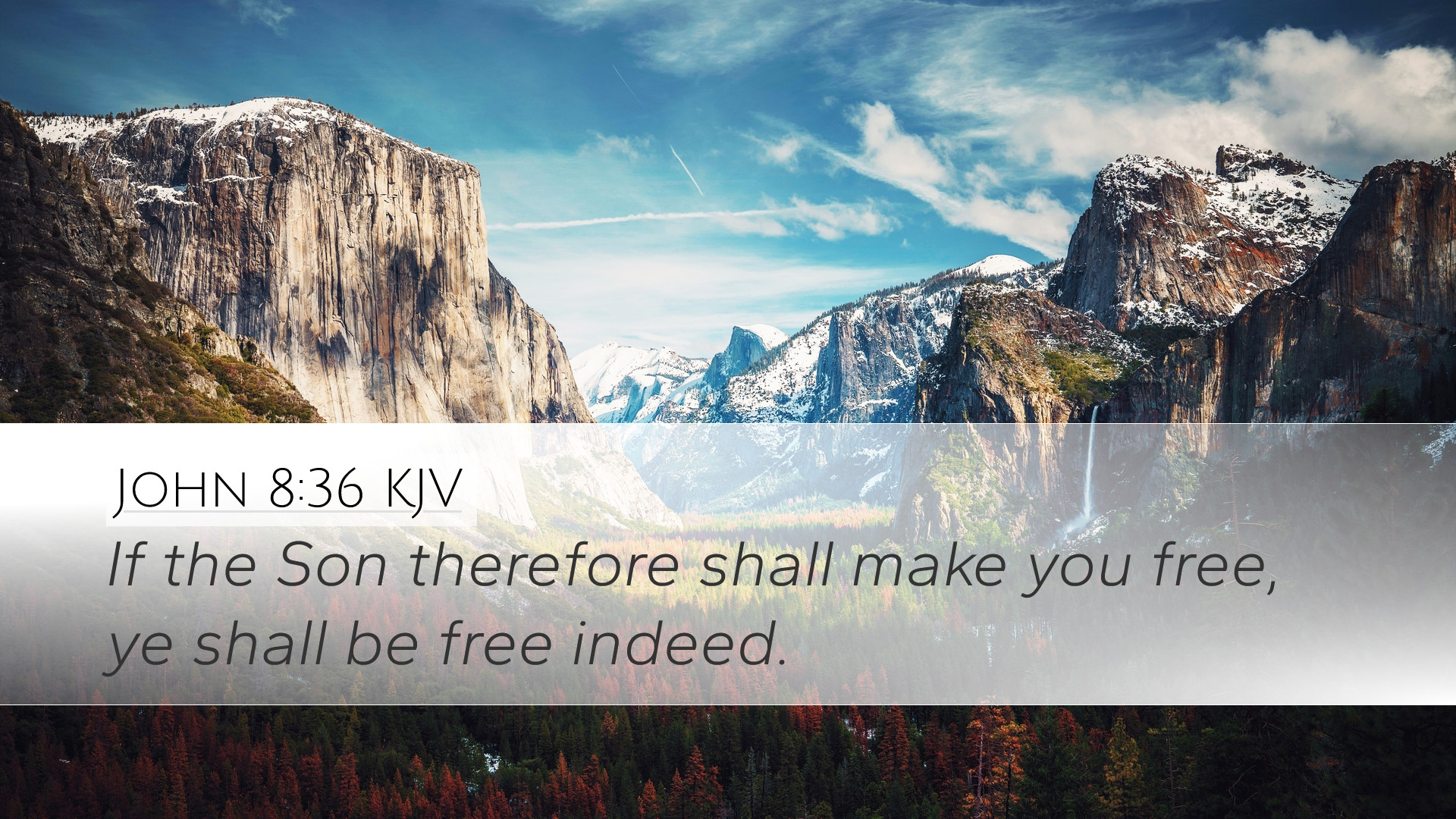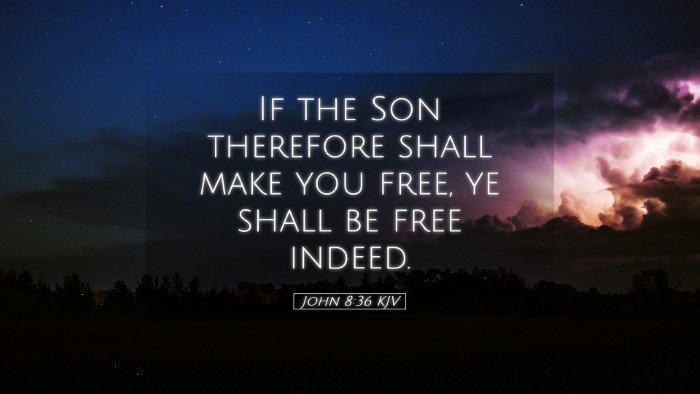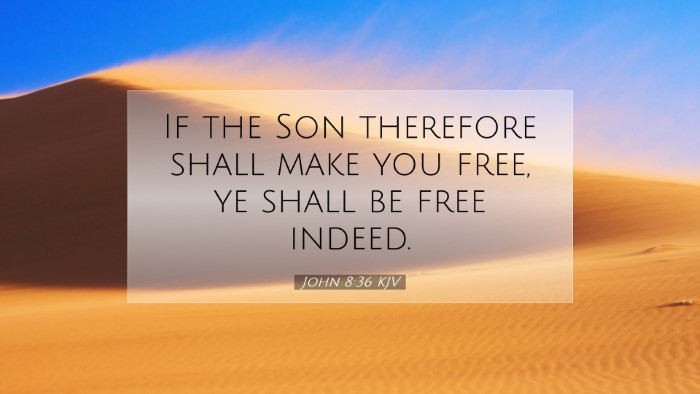Commentary on John 8:36
“If the Son therefore shall make you free, ye shall be free indeed.”
This profound declaration from the Gospel of John encapsulates the essence of salvation and the liberation that comes through faith in Jesus Christ. Below, we explore various interpretations and insights from esteemed public domain commentaries to provide a comprehensive understanding of this significant verse.
Introduction
The context of John 8:36 centers around a dialogue between Jesus and the Jewish leaders. The chapter begins with Jesus’ interaction with a woman caught in adultery and leads into a broader teaching on the nature of sin, truth, and freedom. This specific verse serves as a climactic point, emphasizing the authority of Christ in granting true freedom.
Insights from Matthew Henry
Matthew Henry observes that the freedom Jesus speaks of is not merely political or social, but a profound spiritual liberation. He notes that “the Son” refers to Jesus’ unique relationship with the Father, affirming His divine authority to remove the shackles of sin. Henry emphasizes:
- Spiritual Bondage: Sin ensnares individuals, leading to a cycle of guilt and condemnation.
- The Role of Christ: Only through Christ can one experience true liberation from this bondage.
- Assurance of Freedom: When Christ sets one free, that freedom is complete and definitive, as asserted by the phrase “free indeed.”
Application of Matthew Henry’s Commentary
For pastors and theologians, this passage highlights the importance of preaching the Gospel’s promise of freedom. It offers assurance to the faithful that their sins are forgiven and their status before God is secure.
Insights from Albert Barnes
Albert Barnes expounds on the idea that the freedom granted by Christ is transformative and exceeds typical human understanding. He remarks:
- True Freedom Defined: Barnes articulates that merely being a descendant of Abraham does not equate to spiritual freedom; true liberation comes from faith in the Son.
- Christ’s Authority: The phrase “the Son shall make you free” underscores that He possesses the power to liberate from both the guilt of sin and the effects of its tyranny.
- Experiential Knowledge: To be “free indeed” requires a personal experience of this freedom, which is a joyful state that believers are called to appreciate.
Application of Albert Barnes’ Commentary
This commentary encourages scholars and students to explore the profound implications of personal faith. It challenges believers to reflect on their experiences of freedom and to share these testimonies within their communities.
Insights from Adam Clarke
Adam Clarke offers a rich perspective on the social and theological dimensions of freedom as articulated in this verse. His contributions include:
- Dichotomy of Freedom: Clarke differentiates between civil freedom and spiritual freedom. He points out that earthly freedoms are temporal and dependent on societal structures, while spiritual freedom is eternal and rooted in Christ.
- Theological Implications: The ability of the Son to free individuals ties into the larger themes of atonement and redemption found throughout Scripture.
- A Call to Worship: Clarke emphasizes that recognizing one’s freedom should lead to worship and gratitude towards God for the unmerited grace bestowed upon believers.
Application of Adam Clarke’s Commentary
Students and scholars can utilize Clarke’s insights to engage in deeper theological discussions about the nature of freedom. This commentary encourages a holistic view of freedom that encompasses both practical and spiritual elements and inspires a life of gratitude and service.
Conclusion
John 8:36 stands as a powerful proclamation of the freedom available through Christ. As explored through the insights of Matthew Henry, Albert Barnes, and Adam Clarke, this verse underscores several key themes:
- The Nature of Sin: All humanity is spiritually bound by sin.
- The Work of Christ: Jesus alone possesses the authority to liberate.
- Experiential Freedom: Believers are invited to live in the fullness of this freedom, marked by assurance, joy, and a life of worship.
For pastors, students, and scholars, this passage is foundational in understanding the Christian experience of salvation and the empowerment it provides for a life dedicated to God.


